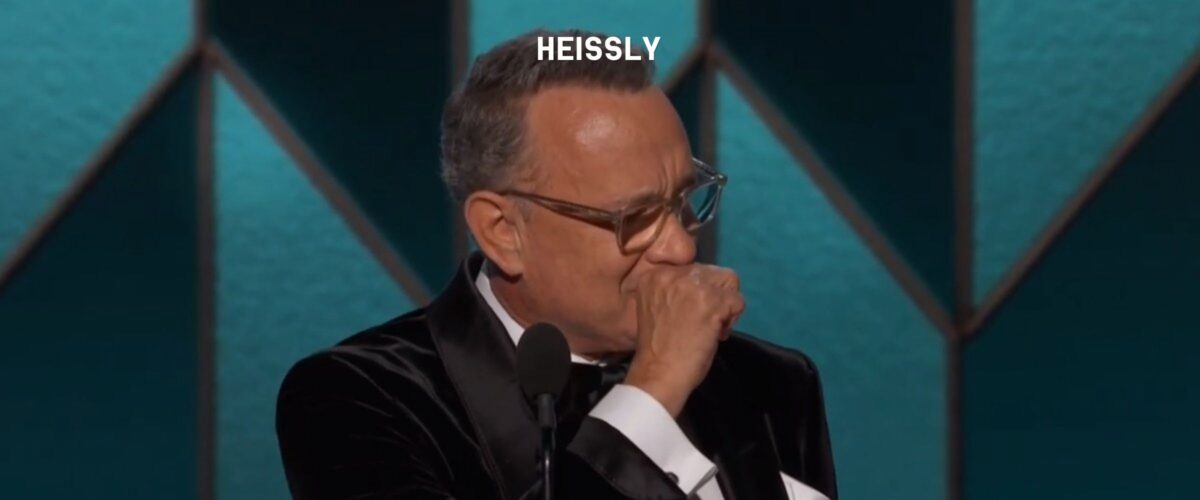Tom Hanks Threatens to Flee America: “This Country Is No Longer What It Once Was”
What’s the Claim?
There’s a circulating media claim that Tom Hanks is once again threatening to leave the United States, asserting:
“America is no longer what it once was under the Trump administration.”
The story suggests that Hanks is so dismayed by current political realities—particularly the influence of Donald Trump and his administration—that he may depart the country.
However, this claim lacks credible evidence. Fact-checking organizations have found that the assertion that Hanks announced plans to leave the U.S. is false, originating from satirical sources. Lead Stories+1
What We Do Know About Hanks and His Remarks
-
Tom Hanks has publicly commented on American democracy, the Constitution and the country’s resilience, especially after the 2016 election. For instance: “We are going to be all right … this document (the Constitution) is going to protect us.” The Washington Post+2Vanity Fair+2
-
He has not, however, been reliably documented to say he is leaving the U.S. because of Trump or to claim the country “is no longer what it once was.” Fact-checkers have labelled these claims as satire or fabricated. MEAWW News+1
-
In November 2024, a viral post claimed Hanks had left the country and dropped Oscar nominations; this was debunked by both Snopes and PolitiFact as false. Snopes+1
Why This Claim Is Significant
Even though the statement is false (or at least unverified), the spread of the claim raises several important points:
1. Celebrity Political Statement & Public Perception
When major public figures like Hanks are tied to head-lining political statements—especially about leaving the country or rejecting national identity—the story resonates far beyond entertainment news. Whether true or not, it reflects how people perceive their country, their leaders and their future.
2. Polarized Discourse
The wording—“America is no longer what it once was under the Trump administration”—implicitly critiques Trump’s presidency and suggests national decline or betrayal of values. Such a claim furthers the political divide, especially among those who believe strong change is needed and those who see such remarks as unpatriotic or exaggerative.
3. Misinformation and Satire
The fact that this claim has been flagged as originating in satire underscores how easy it is for false or misleading narratives to spread, especially when they play on emotional themes like national identity, disillusionment or celebrity betrayal.
4. Dialogue about National Change
Even if Hanks didn’t say the quote, the story taps into a broader feeling among some Americans: that the country has fundamentally shifted in recent years, and that its values, systems or global role are different than what they once were.
What to Watch
If you’re following this story (or similar ones), here are key things to pay attention to:
-
Official Source Verification: Did Hanks actually say this? Look for video, transcript, direct interview quotes—not just headlines or social-media memes.
-
Platform Response: Are platforms or fact-checkers marking this as satire or false? In this case, they have.
-
Impact on Public Discourse: Stories like this can influence how people talk about national identity, celebrity roles, and political engagement—even when false.
-
Triggering of Related Narratives: This claim could surge alongside broader claims of “celebs leaving the country” or “Hollywood rejecting America,” which may or may not be grounded in fact.
-
The Underlying Sentiment: Even if the statement is false, what does it reflect about public mood? Are enough people feeling like the America they knew has changed?
My Take
Although Tom Hanks is widely respected and has spoken thoughtfully about the U.S., the particular assertion that he’s threatening to leave America with that quoted phrase is not supported by credible evidence.
But the fact the claim exists—and spreads—matters. It tells us something: many Americans (and observers) feel that their country is changing in ways they don’t recognize or feel comfortable with. Hanks, as a cultural icon representing some version of American optimism (“America’s Dad”), becomes a symbol in that narrative—even if the quote is fake.
In short: the quote itself may not be true, but the story is real in terms of what it exposes about national sentiment, celebrity influence and the power of political rhetoric.
